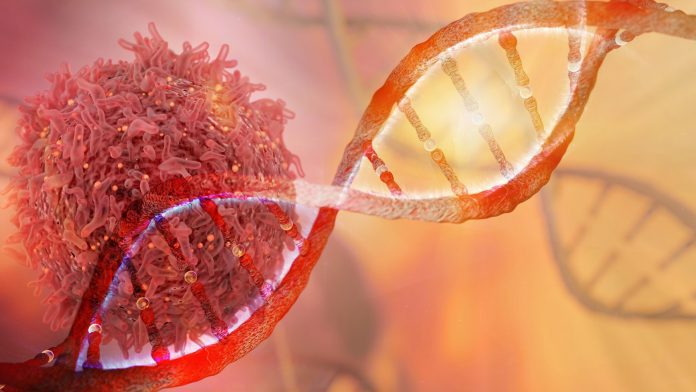
Danish researchers have potentially made a groundbreaking advancement in developing an effective targeted therapy for cancer, identifying the pivotal role that the BRCA2 gene plays in the deadly disease.
The study, conducted by experts from the University of Copenhagen, has revealed unprecedented insights into the BRCA2 gene, the mutation of which is known to impact the development of a range of cancers. The researchers believe that the study provides crucial information about potential cancer risks and may aid in developing novel targeted cancer treatments for patients who have a mutation of BRCA2.
What is BRCA2?
The BRCA2 gene performs an essential role in repairing the DNA of specific damaged cells, and if this DNA damage is not remedied, it can result in the development of cancer. In recent years, scientists discovered that a group of women with hereditary ovarian and breast cancer also have mutations in one of two genes, BRCA1 and BRCA2, with the genes and proteins they encode sparking considerable interest among the scientific community.
These genes work as the codebook for how the body’s proteins are produced; for example, if a person inherits a mutation in a gene, there is an error in the codebook, causing an error in the protein, disrupting its function, and damaging the cell.
Now, the University of Copenhagen team has identified that BRCA2 needs a specific enzyme – PP2a-B56 – to repair damage to DNA. PP2a-B56 is a type of household enzyme, meaning that it has a range of functions within the cell.
Sara Marie Ambjørn, a Postdoc at the University of Copenhagen, said: “We found that there is an interaction between BRCA2 and the enzyme which is key to the cell’s ability to repair DNA damage. At the same time, we can see that mutations that impair this interaction reduce the ability to repair DNA damage. We made this discovery by studying a part of BRCA2 that no one has previously looked at.
“We have tested mutations found in cancer patients that affect the interaction between the enzyme and BRCA2, and we can see that they affect the cells’ response to a substance used in chemotherapy.”
Enhancing targeted cancer treatments
The researchers introduced various mutated forms of BRCA2 in human cells in the laboratory to investigate their discovery, examining their ability to assist DNA repair. The team discovered that if they mutated BRCA2 so that the interaction between it and the enzyme became interrupted, the cells could no longer repair damaged DNA. A plethora of previous studies have suggested that the enzyme has a role in repairing DNA damage; however, this novel study is the first to illustrate how it occurs.
Sara Marie Ambjørn, also a Postdoc at the University of Copenhagen, commented: “We can now state that it is necessary for the enzyme PP2A-B56 to interact with BRCA2 in order for DNA damage to be repaired properly and in a healthy manner. We also know that mutations in the enzyme itself are connected to the development of certain types of cancer. This opens up a perspective for studying whether some cancer patients with mutations in the enzyme may benefit from treatments used for cancer patients with BRCA2 mutations.”
This revolutionary investigation may innovate future targeted therapies for cancer patients with a specific group of mutations, greatly enhancing treatment for the disease.







